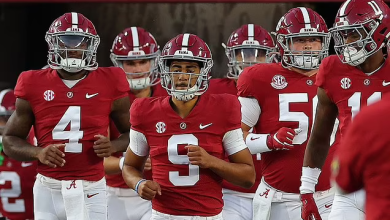Kevin Garnett claims he kept his NBA money beneath a mattress for over a decade.

In an eye-opening revelation, Kevin Garnett, one of the greatest basketball players in NBA history, recently shared a peculiar detail from his personal finances that has left fans and analysts alike intrigued. The 2004 NBA MVP and 15-time All-Star claimed that, for over a decade, he kept his NBA earnings stashed beneath a mattress. This admission, coming from a player who made hundreds of millions of dollars over the course of his illustrious career, has sparked discussions about financial habits, the psychology of wealth, and the broader implications of such an unconventional money management strategy.
A Surprising Confession from a Financial Giant
Garnett’s confession was made during an interview on a popular podcast, where he discussed a variety of topics surrounding his career, his mindset, and his life after basketball. Among the many revelations he made, his comments on money management stood out as particularly surprising. The idea of a modern-day NBA superstar, known for his larger-than-life persona and immense wealth, opting for a method so seemingly out of step with the financial management strategies of today’s elite athletes is both fascinating and thought-provoking.
For Garnett, it seems that his decision to keep his money in a mattress was rooted in a deeper personal philosophy about trust, control, and the fear of losing what he had worked so hard to accumulate. His reasoning was less about evading taxes or hiding assets and more about personal comfort and financial security during a time when his life and career were still in flux.
Garnett’s Unconventional Financial Philosophy
The financial habits of professional athletes have long been a topic of intrigue and sometimes concern. With contracts worth millions of dollars, endorsement deals that add significant sums to their wealth, and the pressures of maintaining such fortunes, athletes are often faced with questions about how best to manage their money. While many turn to financial advisors, accountants, and investments to grow their wealth, Garnett’s approach was distinctly different.
In his interview, Garnett explained that he felt a sense of peace and security in knowing that his money was physically close to him, even if that meant not putting it in traditional financial institutions. He talked about the inherent mistrust he had for the banking system and the financial industry, which had become more complex and volatile over time. Garnett’s upbringing, marked by a sense of financial instability, had shaped his views on money. Growing up in a lower-income household, he was taught to value hard work and be cautious with finances. As he transitioned into the world of professional sports, those early lessons stayed with him.
“I didn’t trust banks, I didn’t trust people managing my money,” Garnett said during the podcast. “I kept everything underneath my mattress, just to have control. I wanted to know exactly where my money was at all times.”
For Garnett, this act was not about being reckless, but rather an effort to maintain a sense of autonomy over his wealth. Even though he had earned substantial sums through his NBA contracts, endorsement deals, and other business ventures, Garnett’s deep-rooted distrust of the financial system led him to keep large amounts of his earnings in an unconventional and tangible form—beneath a mattress. In his mind, it was a way of “holding on” to what he had earned, and it also gave him peace of mind knowing that his money was within reach at all times.
Financial Security for a Superstar
Garnett’s career earnings were certainly no small sum. Over his 21-year NBA career, Garnett earned over $334 million from his contracts alone, making him one of the highest-paid athletes in basketball history. In addition to his playing salary, he earned millions from endorsements with major brands like Nike, Adidas, and McDonald’s, not to mention lucrative investments in real estate and other ventures.
Despite the vast sums of money flowing into his bank accounts, Garnett remained wary of the financial management industry, where stories of athletes losing fortunes due to poor investments, predatory advisors, or mismanagement are not uncommon. His skepticism was likely reinforced by the countless stories of former athletes who had squandered their wealth or been taken advantage of by unscrupulous financial advisors.
Garnett’s decision to keep his money close was rooted in a desire to maintain control, something that had always been a central part of his personality. Throughout his playing career, Garnett was known for his intense focus, his meticulous attention to detail, and his unwavering control over his game. It is no surprise that he applied the same mentality to his personal finances.
The Dangers of Holding Cash
While Garnett’s desire for control is understandable, keeping such large amounts of money in a non-secure place like a mattress carries a number of risks. In an age when digital banking, investment portfolios, and financial planning are the norm, stashing cash beneath a mattress is an antiquated method of safeguarding wealth. Even though Garnett’s money was undoubtedly protected by his personal security team, the risks are still significant.
Firstly, there is the issue of theft. As wealthy as Garnett is, having cash physically stored in an unsecured location exposes him to the risk of burglary. Even if the money was kept in a highly secure, locked area, the possibility of theft or robbery was always a concern.
Secondly, inflation and the devaluation of cash are significant risks that athletes and non-athletes alike must consider. Money kept in physical form, without any form of interest or investment growth, essentially loses value over time due to inflation. While Garnett may have been content with his financial strategy, his wealth could have grown at a much faster rate had he invested it properly in stocks, bonds, or other financial assets.
Lastly, there is the question of tax compliance. Though Garnett has never been linked to any illegal financial practices, keeping large amounts of money outside of formal financial channels could raise questions with tax authorities. Without documented transactions or investments, it becomes difficult to track the flow of money and ensure proper reporting.
The Changing Landscape of Athlete Finances
Despite the many challenges that come with managing vast amounts of wealth, the modern athlete has access to an array of tools that allow for a more sophisticated approach to personal finance. The rise of financial advisors, wealth managers, and even athlete-specific financial education has changed the way players manage their money. Many professional athletes today receive extensive training on how to handle their finances, with a focus on long-term wealth preservation and responsible investing.
The shift in the financial landscape has also led to a greater emphasis on financial literacy among athletes. Former NBA players like Chris Paul and LeBron James, for example, have publicly spoken about their dedication to learning about money management, working with trusted advisors, and securing their financial future.
Additionally, many NBA players have gone the route of investing in businesses, both within and outside the sports world. Garnett himself has been involved in several business ventures, including a stake in the Boston Celtics (the team he played for from 2007 to 2013) and investments in real estate. These types of ventures allow athletes to grow their wealth beyond their playing days and ensure a secure financial future once their careers end.
However, even as the financial industry has become more accommodating to athletes, there are still those like Garnett who remain wary of placing their full trust in traditional systems. Whether it’s a personal preference or a learned lesson from his experiences, Garnett’s unconventional approach to money management stands as a reminder that, even in a world of modern financial tools and advice, personal comfort and control can still shape an athlete’s decisions.
Life After Basketball
Since retiring from the NBA in 2016, Kevin Garnett has made the transition into the business world and has remained active in various ventures. His wealth, as well as his investments, has allowed him to live comfortably, even without his NBA salary. However, Garnett’s financial decisions are now part of a larger conversation about the importance of wealth management for athletes in general. His openness about his past financial habits has made him a more relatable figure for those who see the potential pitfalls of sudden wealth, and it also serves as a cautionary tale about the risks of financial mismanagement.
As for Garnett’s personal finances, it’s unclear whether he still holds money in this unconventional manner. Given the evolution of his financial approach and his increasing involvement in business ventures, it’s possible that Garnett has since adopted a more traditional approach to managing his wealth. Nonetheless, his story highlights the complexities that come with handling large sums of money, and it shines a light on the personal preferences that influence how athletes choose to protect and grow their fortunes.









